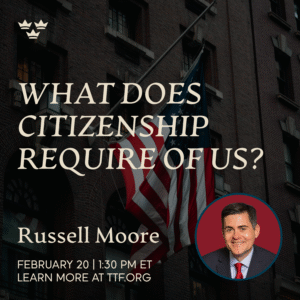Arthur Brooks, president of the American Enterprise Institute, has written an excellent essay in the current issue of COMMENTARY. It lays out a conservative social justice agenda aimed at helping the most vulnerable members of society. The pillars of this agenda include personal moral transformation, material relief, and opportunity.
Specific polices are of course crucial, and what Brooks lays out is commendable. For now, though, I want to focus on the underlying case for a social justice agenda.
The term itself is not one you often hear from conservatives, perhaps in part because of the brilliant Austrian economist Friedrich Hayek’s distaste for it. Hayek believed the idea of social justice was a mirage, an “empty formula” and “hollow incantation,” and impossible to define. (You might enjoy watching this 1977 Firing Line conversationbetween William F. Buckley Jr. and Hayek on social justice.)
On the matter of social justice, Hayek had in mind distributive justice. “There can be no distributive justice where no one distributes,” Hayek put it. “Considerations of justice provide no justification for ‘correcting’ the results of the market,” he said elsewhere. “Only human conduct can be called just and unjust,” Hayek argued. (Hayek himself did not oppose a comprehensive system of social insurance and favored a guaranteed minimum income. His fear was that the concept of social justice would lead to “centrally planned distribution according to merit,” in the words of the philosopher David Schmidtz. “He thinks a merit czar would be intolerable.”)
Professor Hayek’s insights about spontaneous order, the virtues of dispersed decision making, the dangers of collectivism and centralized planning, and the limits of social knowledge are tremendous contributions. But I do think that the term “social justice,” as defined by Hayek, is too constricted and incomplete; that it’s a term conservatives should not only refuse to cede to the left but one they should embrace.
My Ethics and Public Policy Center colleague Yuval Levin reminded me of Irving Kristol’s rejection of Hayek’s denial of the idea of social justice in his 1970 essay “When Virtue Loses All Her Loveliness.” Kristol pointed out that Hayek, for whom Kristol had great respect, preferred a free society to a just society “because, [Hayek] says, while we know what freedom is, we have no generally accepted knowledge of what justice is.”
“Can men live in a free society if they have no reason to believe it is also a just society?” Kristol asked. “I do not think so. My reading of history is that, in the same way as men cannot for long tolerate a sense of spiritual meaninglessness in their individual lives, so they cannot for long accept a society in which power, privilege, and property are not distributed according to some morally meaningful criteria.”
Kristol praised American society when it was
still permeated by the Puritan ethic, the Protestant ethic, the capitalist ethic – call it what you will. It was a society in which it was agreed that there was a strong correlation between certain personal virtues – frugality, industry, sobriety, reliability, piety – and the way in which power, privilege, and property were distributed. And this correlation was taken to be the sign of a just society, not merely of a free one.
So denying the possibility of a common idea of justice is not one I’m prepared to accept. Moreover, the Hebrew Bible and New Testament don’t seem to accept it, either. In his book Generous Justice, Timothy J. Keller writes that the words “social justice” appear more than three dozen times in the Bible. (Dr. Keller argues that “social justice” is the best English expression we have for the relevant Hebrew words. The most accurate translated text for Psalm 33:5, for example, would be, “The Lord loves social justice; the earth is full of his unfailing love.”)
Whether or not one finds this persuasive, social injustice exists; so, I would argue, does the concept of social justice–and any society that fails to dispense some measure of sympathy and solicitude to others, particularly those living in the shadows and who are most vulnerable to injustice, cannot really be a good society. A decent civilization needs to have something to say to them. So should the conservative movement. Which brings me back to the essay by Arthur Brooks.
“The conservative creed should be fighting for people, especially vulnerable people, whether or not they vote as we do,” Brooks writes. “This is our fight, and it is a happy one. After all, as Proverbs 14:21 reminds us, ‘He that despiseth his neighbor, sinneth: but he that hath mercy on the poor, happy is he’.”
Whether this effort travels under the banner of social justice or some other name, to do justice and to love mercy is what is required of us, as individuals and as a society. Or so it seems to me.


